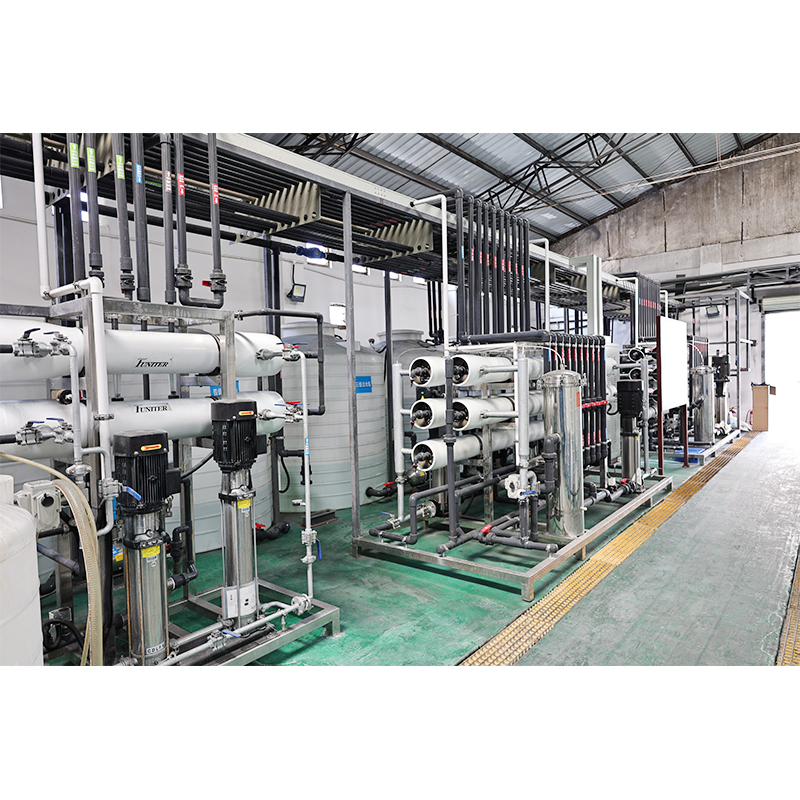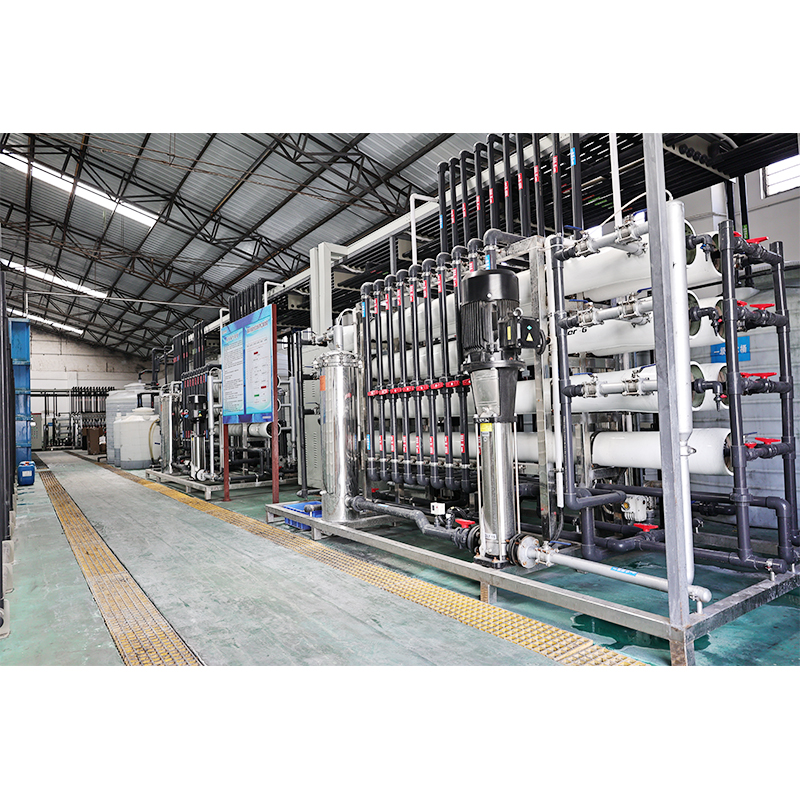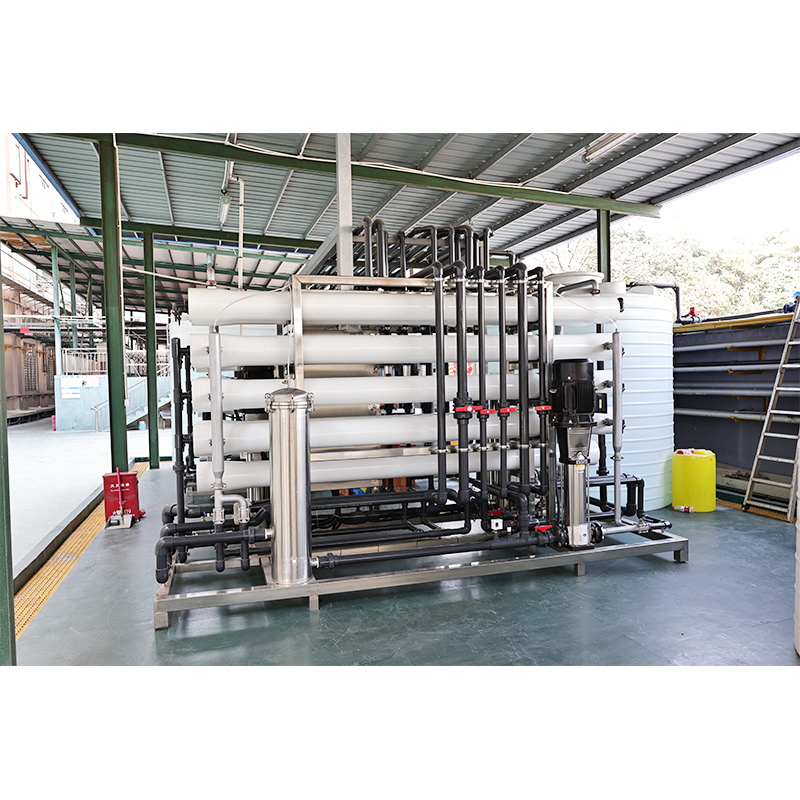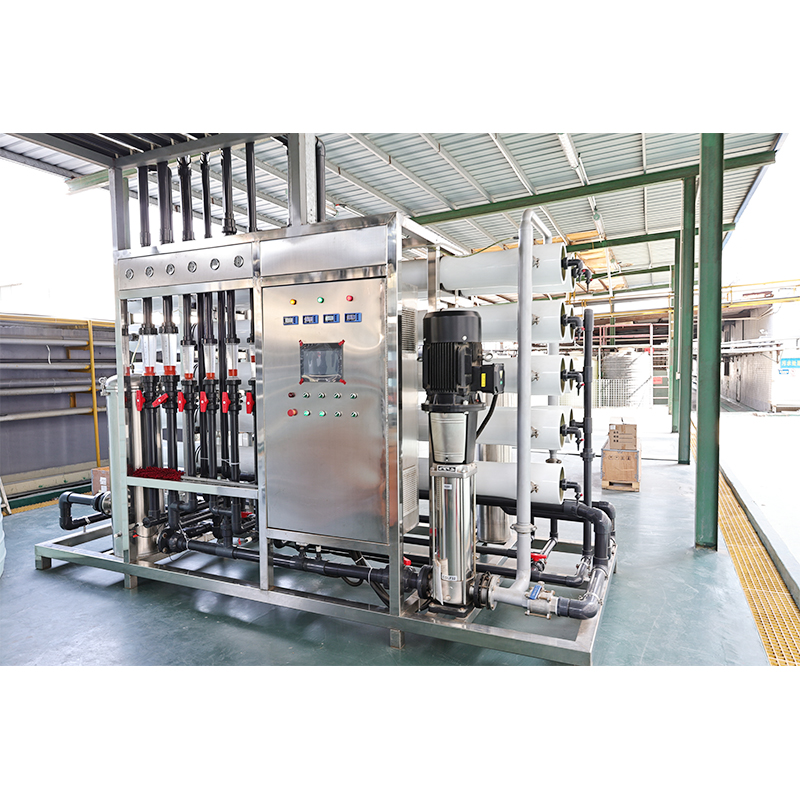Is sea water industrial ro membrane resistant to oxidation? Can it withstand the erosion of oxidants in sea water?
Release Time : 2025-07-23
The oxidation resistance of sea water industrial RO membrane is closely related to the chemical properties of its membrane material. High-quality RO membranes are mostly made of aromatic polyamide. After special chemical modification, antioxidant groups are introduced into the molecular structure to enhance the resistance to oxidants. This structural optimization makes it difficult for the membrane material to break its molecular chain when it comes into contact with oxidants such as chlorine and ozone in seawater, thus maintaining its own stability.
The coating technology on the membrane surface plays an important role in improving oxidation resistance. Some sea water industrial RO membranes will be covered with an antioxidant coating on the surface. This coating can block the oxidant from directly contacting the main material of the membrane like a barrier, reducing the erosion of the membrane by the oxidant. The coating itself has strong chemical stability and can react weakly with the oxidant to consume part of the oxidant, thereby protecting the core structure of the membrane from damage and extending the service life of the membrane.
During the seawater treatment process, the oxidant content in seawater will fluctuate due to environmental changes, and RO membranes with good oxidation resistance can adapt to such fluctuations. Even if the oxidant content temporarily increases, the performance of the membrane will not show obvious attenuation. For example, when the seawater is polluted and the residual chlorine content increases, the RO membrane can still maintain a stable desalination rate and water production, and will not fail due to the short-term increase in oxidant concentration, ensuring the continuity of the desalination process.
The manufacturing process of the membrane also affects its oxidation resistance. Advanced production processes can make the molecular arrangement of membrane materials more compact and orderly, reducing the chance of oxidants penetrating into the membrane. At the same time, precise control of the process can avoid the appearance of micropores or defects on the membrane surface, which are often the weak links of oxidant corrosion. By optimizing the process, the RO membrane can form a uniform and dense structure, enhancing its resistance to oxidants from a physical level.
The complexity of the seawater environment, especially the long-term effects of oxidants, is fully considered in the design of sea water industrial RO membrane. In the research and development stage of the membrane, the oxidant concentration in seawater is simulated and long-term accelerated aging tests are carried out to verify the oxidation resistance of the membrane. The rigorously tested RO membrane can withstand long-term oxidant corrosion in actual applications, and the performance decays slowly, ensuring stable operation over a long service life.
Compared with ordinary RO membranes, sea water industrial RO membrane has obvious advantages in oxidation resistance. Under the action of oxidants in seawater, ordinary RO membranes may have problems such as decreased membrane flux and reduced desalination rate in a short period of time. However, sea water industrial RO membrane can significantly improve its antioxidant capacity and reduce performance loss caused by oxidation through material improvement and structural optimization. This advantage makes it more suitable for use in complex environments such as seawater rich in various oxidants.
Sea water industrial RO membrane has good oxidation resistance and can withstand the erosion of oxidants in seawater. Whether it is the chemical properties of the material itself, the anti-oxidation coating on the surface, or the advanced manufacturing process, it provides reliable anti-oxidation protection. This oxidation resistance ensures the stable operation of the RO membrane during the desalination process, reduces the replacement frequency caused by oxidation damage, reduces the cost of seawater desalination, and plays an important role in the field of seawater resource utilization.







